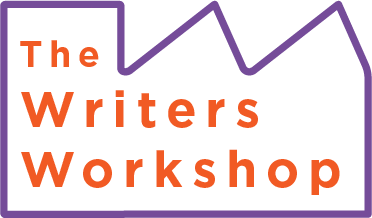‘Surprised, excited and a bit weepy’
How would you feel to win a writing award? At the Writers Workshop, we are delighted that longstanding member Rachel Rowlands has recently won the Hachette Children’s Novel Award, part of the Northern Writers Awards, with her Sheffield-based historical story Steel City Elephant. We asked Rachel to share her writing journey and some tips for writing for kids.
What is the Hachette prize and what book did you win with?
The Hachette Children’s Novel Award is a Northern Writers Award and consists of £3,000, a nine month programme of mentoring with Hachette and an agent, plus access to New Writing North’s programmes of support. I won it with my middle-grade novel Steel City Elephant. When I opened the email with the news, I was hugely surprised, excited and a bit weepy. The opportunity given by the prize is amazing, providing the sort of input I have really wished for. But also, it means so much to receive recognition for a piece of writing I have put such love, care and effort into and invested so much time in.
Where did the idea for your story come from and why was it important to you?
I first encountered Lizzie the elephant at Kelham Island Museum. Leased from a menagerie by Thomas Ward in 1916, when his horses were requisitioned, Lizzie carted scrap metal needed for munitions for the remainder of the 1914-18 War. She was quite a character, and there are many anecdotes about her. Wishing I could spirit myself back to that time to meet her, I loved the idea of bringing her alive for children today. The many facets of Lizzie’s elephantness were something I discovered as I created the story. I also felt drawn to write about how war affected different people’s lives.
What were the greatest joys and biggest challenges you experienced on the writing journey?
I love being absorbed in a piece of writing, returning to it day after day. A particular joy was attending talks and exhibitions about Sheffield during the Great War (I was lucky to be writing at the time of the centenary) and visiting people and places connected with Sheffield’s industrial past. The biggest challenge was turning an elephant who carts metal into a story with plenty of action and suspense to keep a child reader turning the pages or wanting the next chapter read to them. Every so often I felt very despondent about my plot (or lack of it), and it was hard discarding characters and scenes I’d spent ages creating. I tussled with historical accuracy versus creating a compelling story. It took patience and determination to keep going, trusting that I had the makings of a good novel and that, if I kept open, the necessary ideas, pace and structure would come.
Do you have any advice for anyone writing a children’s book?
Everyone is different, there are many different ways of writing, and there are many kinds of writing for children. However, in my journey, I found the following things helpful.
Keep reading children’s books/stories, especially recently published ones (the library is a good source).
Write what you feel drawn to write about, but always write with a child reader in mind.
Your first draft is a process of discovering what your story is about. It doesn’t matter how misshapen or rubbish it seems to be. There’s no need to go back over it and edit till you’ve got down as much as you can. After that, you need to keep working on plot, structure and pace to keep a child reader gripped.
Be prepared, if necessary, to make bold changes. I spent quite a lot of time tinkering when more radical change was needed!
Get feedback from readers who know what makes good children’s writing. As well as getting feedback on chapters at writing groups, it’s helpful to get professional editorial feedback, if you can afford to. Some of the most helpful feedback on my novel that I received was from a fellow Sheffield writer who had done a children’s novel-writing course.
Have patience. A novel can take time to evolve, so take whatever time is needed. Put your work aside for a while and work on something else. I submitted this same novel to Northern Writers three times: the first time with no result, a year later I was shortlisted, and three years later I won.
Keep true to yourself and what you want to achieve. Find your own level. If hoping for a particular outcome, have a Plan B, (C, D …). Try different things, have fun.
What will happen next with your winning story?
I don’t know yet what will happen next. I hope that the mentoring I am receiving as part of my prize will help me to get my story into print. There may be more work I need to do on the novel first. What I most hope for is that the book reaches an audience of children, and adults too, who will enjoy it and be touched in some way by it.
I want to say a special thank you to Beverley Ward who read my first draft and also a later one, and who has continued to encourage me and so many of us. Her gift for bringing people together has contributed hugely to my writing, giving me writing peers who have offered fantastic help and support along the way. As individuals, we put the words on the page, but much of our writing comes from being part a community.

